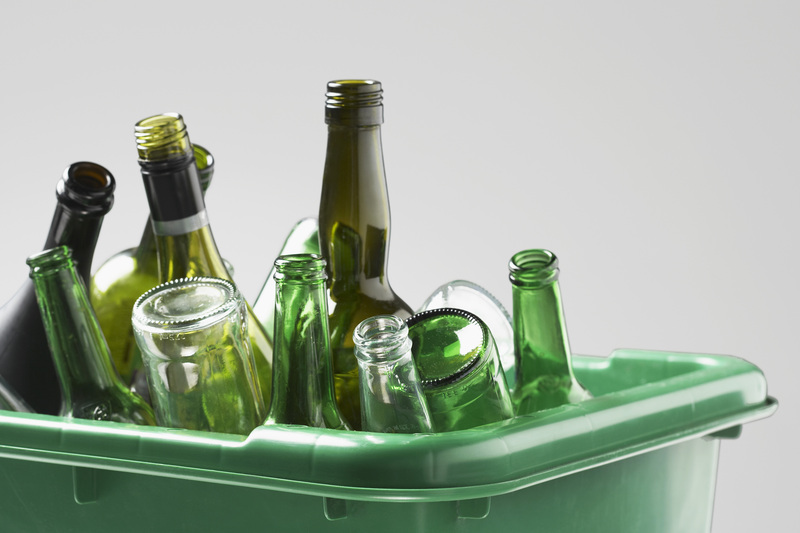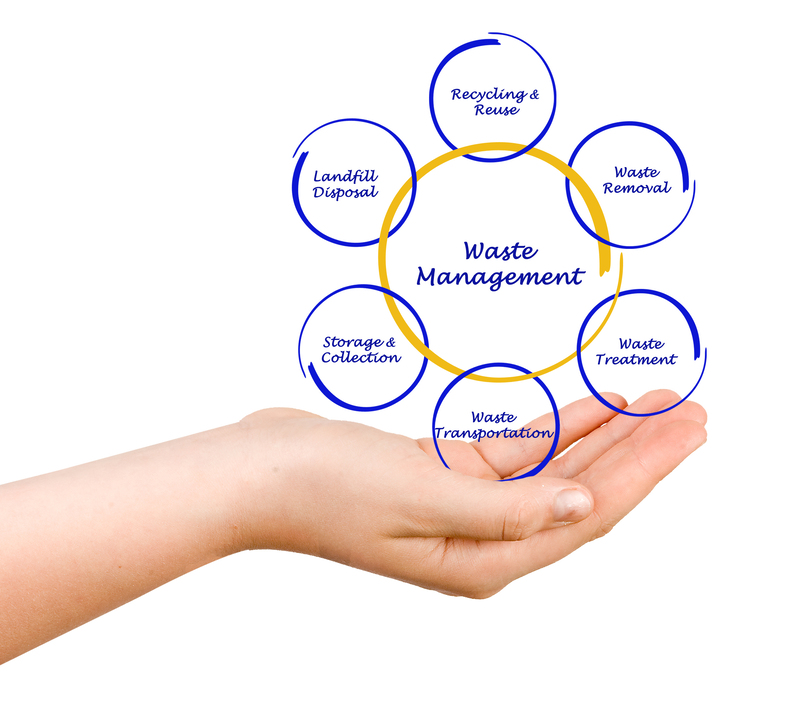Where to Recycle Your Used Pots and Pans: The Essential Guide for Eco-Conscious Homeowners
Have you recently upgraded your cookware and are now wondering what to do with your old pots and pans? Many households accumulate a collection of worn-out or mismatched cookware over the years. If you cherish the environment and strive for sustainability, simply tossing these items into the trash isn't the answer. In this comprehensive article, we'll explore detailed and actionable steps for recycling used pots and pans, ensuring your old cookware finds a new life without harming our planet.
Why Is It Important to Recycle Old Cookware?
Cookware is typically made of metals like stainless steel, aluminum, cast iron, or copper--all of which can be recycled. Some pieces might also include plastic, silicone, or non-stick coatings. By opting for pots and pans recycling, you conserve natural resources, reduce landfill waste, and lessen pollution associated with manufacturing new products.
Recycling old cookware is a crucial step in promoting a sustainable and eco-friendly lifestyle.
Environmental Benefits of Recycling Pots and Pans
- Reduces landfill waste: Metal takes decades to decompose and can leach harmful chemicals.
- Conserves resources: Recycling metals uses less energy than mining virgin materials.
- Lowers emissions: Reduced energy use means less pollution.
- Encourages a circular economy: Your old cookware can become new products!

What Types of Pots and Pans Can Be Recycled?
Not all cookware is eligible for recycling, but most metal pots and pans usually are. Here's a simple guide:
- Stainless steel, cast iron, aluminum, and copper cookware: Generally accepted at scrap metal recyclers and certain recycling centers.
- Non-stick pots and pans (Teflon-coated): Varies by region; some recyclers do not accept non-stick coatings. Check ahead.
- Pots and pans with plastic handles or glass lids: You may need to remove the non-metal parts before recycling.
- Damaged, rusty, or warped pans: Typically still recyclable as scrap metal, although donation is unlikely.
Where to Recycle Your Used Pots and Pans
There are numerous options across cities and towns for recycling old pots and pans. Depending on your item's condition and material, you may choose any of the following approaches:
1. Local Scrap Metal Yards
Most metal cookware -- regardless of condition -- is welcome at scrap metal facilities. Here's how to proceed:
- Search online for "scrap metal recycling centers near me."
- Call ahead to confirm they accept cookware and ask about any prep work needed.
- Remove non-metal parts, such as plastic handles or silicone coatings, if possible. This helps fetch a better price and ensures recycling efficiency.
- Drop off your items during operating hours.
2. Municipal Recycling Programs
Many cities and counties operate recycling centers or curbside pickup services. However, metalware recycling policies can vary:
- Visit your local government's recycling info page.
- Look up "how to recycle cookware in [your city]."
- Review what is accepted. While some curbside programs accept small metal items, others restrict things like pans due to size or coatings.
- If in doubt, call the recycling hotline or submit a query online.
Pro Tip: Some areas hold annual or quarterly metal recycling drives where you can drop off all types of household metal goods.
3. Specialty Cookware Recyclers and Brands
Several cookware brands and kitchenware retailers now offer take-back schemes or recycling programs for used pots and pans:
- TerraCycle: Partners with various brands to offer mail-in recycling for hard-to-recycle products (including some non-stick cookware).
- GreenPan Recycling Program: Accepts and recycles non-stick cookware from any brand; check their website for eligible products.
- Local kitchenware stores: Some stores periodically host cookware recycling events. Ask your favorite retailer about upcoming opportunities.
Before shipping items, review each program's rules concerning accepted materials and fees.
4. Thrift Stores and Charities
If your used pots and pans are still functional, consider donating them. Many organizations accept gently used kitchen items for redistribution. Popular options include:
- Goodwill
- Salvation Army
- Habitat for Humanity ReStores
- Local homeless shelters, food banks, and refugee resettlement agencies
Confirm that your items are clean, rust-free, and in good working order before donation.
5. Creative Upcycling and Reuse Solutions
Not all cookware has to be melted down! Reusing old pans creatively can keep them out of landfills and add charm to your home or garden:
- Transform a deep pot into a garden planter.
- Hang cast iron pans as rustic kitchen wall art.
- Use old baking tins as storage containers for tools or craft supplies.
- Turn a worn-out frying pan into a quirky bird feeder.
Upcycling is a fun and eco-friendly way to repurpose non-recyclable cookware or pieces with sentimental value.
Frequently Asked Questions About Pots and Pans Recycling
Can Non-Stick Pans Be Recycled?
Most traditional recycling centers do not accept non-stick pans unless the coating is removed. However, scrap metal yards may take them if you strip the non-metal parts. Alternatively, seek out specialized take-back initiatives or contact the manufacturer.
Do I Need to Remove Handles and Lids?
Handles made of plastic, wood, or silicone should be detached before recycling as metal. Glass lids may be recycled with household glass in some regions, but others require separate handling. Always check your local guidelines!
How Clean Do Used Pots and Pans Need to Be?
It's best to thoroughly clean any cookware before recycling or donation. Remove stuck-on food and grease to prevent contamination and make processing easier for recyclers.
Can Rusty or Broken Cookware Be Recycled?
Yes, most metal recyclers accept rusty, warped, or cracked cookware. However, thrift stores or charities will only accept gently used, undamaged items.
Tips for Disposing of Unwanted Pots and Pans Responsibly
- Don't put metal cookware in your general trash bin (unless local guidelines specify otherwise), as it won't decompose safely and wastes valuable resources.
- Separate out non-metal components to avoid contaminating recycling streams and increase your items' value at scrap yards.
- Check for hazardous coatings (such as older Teflon) and dispose of accordingly.
- Explore local "freecycle" social media groups to give away functional cookware.
- Contact makers or retailers for official recycling or trade-in programs, as some brands offer lifetime recycling.

Pots and Pans Recycling: Additional Resources
- Earth911.com: Enter your zip code and the type of cookware to find local recycling options.
- Call2Recycle.org: Offers information on recycling household items including metals.
- TerraCycle.com: Lists current recycling programs by category and location.
- Your city/county solid waste website: For the most accurate local information.
Conclusion: Make Recycling Your Used Pots and Pans a Habit
Choosing to recycle or repurpose your old pots and pans is a significant step toward reducing household waste and protecting our environment. With resources ranging from municipal recycling programs to creative upcycling and charity donations, it's easier than ever to give your tired cookware new life.
Next time you replace a frying pan or casserole dish, use this guide on where to recycle used pots and pans to ensure ethical, environmentally friendly disposal. By taking this simple step, you contribute to a healthier planet -- one kitchen at a time.
Remember: Every recycled pan reduces waste, conserves resources, and helps build a more sustainable future.
Ready to act? Search for local recycling centers, donate usable pans, or try your hand at creative upcycling today!